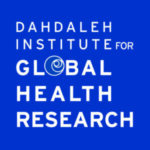Intersections between AI, One Health and Non-Communicable Diseases
Artificial Intelligence and Non-Communicable Diseases
Why focus on this topic?
Non-communicable diseases (NCDs) have complex causes, making it challenging for governments and institutions to design and implement effective prevention policies. Artificial intelligence (AI) offers innovative tools and methods that could enhance evidence-based NCD policy development. While AI is widely used in clinical medicine and the private sector, its application to public health policy—particularly in addressing ethics and equity concerns—remains underexplored. This review aims to identify how AI is being applied to NCD prevention policy and assess the extent to which ethics and equity are considered in these applications.
How is this research done?
This research examines how artificial intelligence (AI) is being used to address non-communicable diseases (NCDs) in policy contexts. This research uses a systematic scoping review to explore the use of AI in NCD prevention policy. By analyzing existing studies, it explores the application of AI across different stages of policy development and assesses the extent to which ethics and equity are considered. The goal is to provide a broad understanding of AI’s role in NCD prevention and identify areas for improvement.
What do we expect to find and why will it matter?
The review is expected to reveal how AI methods are primarily used in the policy process. It will also highlight if there are considerations of ethics and equity in AI applications for NCD policy. These findings will deepen our understanding of how AI can add value to policy processes while addressing ethical and equity concerns. By identifying gaps and opportunities, this research will inform more responsible and effective use of AI in NCD prevention, ultimately contributing to better health outcomes and more equitable policies.
One Health and Non-Communicable Diseases Prevention Policy
Why focus on this topic?
Non-communicable diseases (NCDs) are a leading cause of global mortality, presenting complex challenges that require innovative, interdisciplinary approaches. The One Health framework, which recognizes the interconnectedness of human, animal, and environmental health, has been widely applied to communicable diseases but remains underexplored in the context of NCDs. By focusing on the integration of One Health principles into NCD research, this work seeks to address critical gaps in understanding how these interconnected systems can be leveraged to develop more effective, holistic solutions for NCD prevention and management.
How is this research done?
In collaboration with the Dahdaleh Institute for Global Health Research and Johns Hopkins University, this research explores the application of One Health principles to non-communicable diseases (NCDs) through a broad review of existing literature. By systematically analyzing studies across multiple disciplines, it identifies how interconnected human, animal, and environmental health approaches are being used in NCD research. The goal is to map current practices, uncover gaps, and highlight opportunities for integrating One Health into NCD prevention and management strategies. This approach aims to provide a broad overview of the current state of research and highlight opportunities for future exploration.
What do we expect to find and why will it matter?
The review is expected to reveal the extent to which One Health principles have been integrated into NCD research, identifying both successes and challenges in their application. By synthesizing this evidence, the findings will offer valuable insights for researchers and policymakers, highlighting the potential of One Health to address the complex, multifaceted nature of NCDs. This work will also inform the development of practical guidance and tools to support the adoption of One Health approaches in NCD policy and practice. Ultimately, the integration of One Health principles could lead to more effective, sustainable solutions for NCD prevention and management, contributing to improved global health outcomes.
Sources

